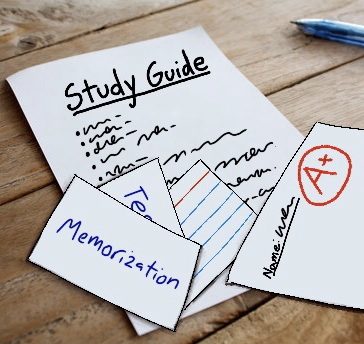Memorize! Memorize! Memorize!
Modern-day schools focus too much on memorization and test scores, causing students to learn only the surface-level information, cheat, and have lower self-esteem.

Why is it that some kids seem to fall behind and develop serious self-esteem issues largely due to struggles in school? The main focus of education has shifted from what it should be. Instead of teaching our children to love learning, we teach them that their self-worth is based on academic performance and memorization. Education should not be imparted this way.
School, as kids know it now, is a system that ranks and divides them based on their academic capabilities and how well they can memorize information. We pack our students with random trivia in fields they may never touch upon again, expecting them to retain it to pass a test, final exam, midterm, or ever-frightening AP exam. We introduce countless standardized tests for college like the ACT, SAT, and AP exams, as well as final exams and countless other tests like the CAASPP for public high schools.
Once these tests are passed, the information floats away, as they were only necessary for the exam. This is exemplified when one considers that, according to an article by Alfie Kohn, standardized tests were discovered to favor students that considered questions at surface level.
Students are rarely taught to stop and take apart the lessons they are being fed. This pressure to perform well on exams completely strips away the chance for students to deeply consider the subject they are learning, and potentially, develop a passion for the topic.
Furthermore, a child’s performance in school–the grades they get on these tests– is used as a direct reflection of their intelligence and self-worth. Such concrete ideas in our society are summarized by a group of researchers in the International Journal for Health Sciences and Pharmacy, who explain that “Academic self-esteem is operationally defined as the evaluative appraisal of the experience of being capable of meeting academic challenges and being worthy of happiness” (D’Mello). Who was it that decided that a child’s ability to pass tests in a math class or memorize dates in a history class was a reflection of their intelligence or their right to happiness? Our children shouldn’t be taught that their worth comes from their ability to memorize formulas and rules.
Beyond this, high schoolers often resort to cheating due to the fear of failure on tests.
The amount of pressure placed on juveniles to succeed in countless tests has grown to such an extent that they feel forced to betray their integrity. We need to teach our kids that the most important values are honesty, passion, dedication, and critical thinking rather than memorization. Children may develop important skills and values outside of the classroom; however, if they do not perform well in their classes, these brilliant students will resign themselves to believing they are unintelligent and may even be pushed to cheat their way into society’s high regards.
The focus of education needs to shift. Education needs to be catered towards each student’s learning style and highlight how valuable their skills are to society, even if memorization isn’t their strong suit. Every kid has a field in which they excel, and they need to be taught to apply these skills to their life. Instead, they learn that memorization is the only skill useful for success. Every child needs to know that they can contribute to society, and right now, our school system does not do a very good job of teaching kids that they can.

